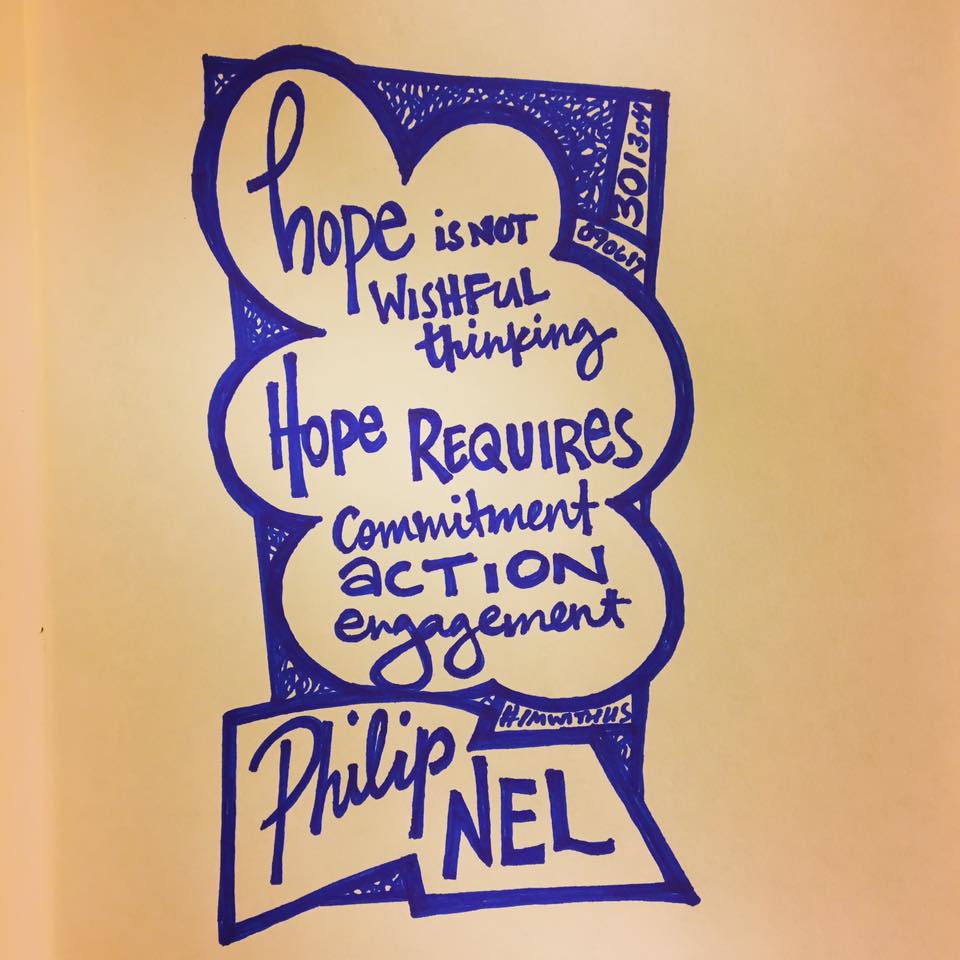 Over at The Chronicle of Higher Education today, I have a piece on “Resolutions for a New Academic Year: A survival guide for higher education in perilous times.” Here’s one of those resolutions:
Over at The Chronicle of Higher Education today, I have a piece on “Resolutions for a New Academic Year: A survival guide for higher education in perilous times.” Here’s one of those resolutions:
Teach students to use language well. We can help them to be wary of lazy euphemism — not just because it is bad writing (though it often is), but because its bland familiarity can anaesthetize the attention. As George Orwell’s famous 1946 essay, “Politics and the English Language,” observes: “If thought corrupts language, language can also corrupt thought.”
The president and his staff spend their days wresting words from their meanings. Amplified by repetition and news coverage, their linguistic nihilism infects our usage, and compromises our collective ability to make sense of the world. So encourage students to discard “alt-right,” “climate skeptic,” and “alternative facts,” and instead, say “white supremacist,” “anti-science,” and “lies.” Help them to resist the slippery idiom of propaganda.
The rest is over at The Chronicle. Thanks to Robin Bernstein for putting the editor from The Chronicle in touch with me, and to that editor (is it appropriate to name her here?) for publishing this.
She — the editor — asked me to write something on “A column of suggestions for how professors (rookies and senior ones) can get the year off to a good start. Kind of a New Academic Year’s Resolutions.” I said sure! And then jotted notes, and more notes, … and wrote a half-dozen incomplete (failed) drafts. I kept getting stuck because offering the usual beginning-of-term advice felt reckless and irresponsible. It felt like the privileged giving advice to the privileged. In any case, there are lots of columns on the challenges of managing our various and proliferating obligations, or setting writing goals, and related professional predicaments.
Indeed, Robin curates an excellent page of advice. (Her own columns are also full of wisdom. I highly recommend them!)
So, instead, I wrote a piece inviting educators to consider how they might shine a light through the fog of lies that envelops us, nurture the capacity for critical thinking, and help others resist the allure of fascist blowhards. Of course, the younger generation did not vote for the tiny-fingered bloviator. But they will live amidst the damage he and his quislings inflict for many more years than their teachers will.
We should really restore that word – quisling – to contemporary discourse. It comes from Vidkun Quisling (1887-1945), the Norwegian Prime Minister (1942-1945) who collaborated with the Nazis, and thus can refer to any short-sighted people who collude with those who do their fellow citizens harm. For instance, most (though not all) of the Republican Party have been happy to betray their country and its citizens. Sure, here and there, they’ll offer a few words of criticism. But will most back up their words with actions? The majority still fantasize about a tax policy that will increase the misery of those in need, and so put their qualms aside to work with the grifter-in-chief. For instance, right now, will they join Democrats & support DACA legislation for immigrants who — though they lack citizenship — have known no other home than the US? Or will they stand by, while America’s fascist clown deports 800,000 hard-working members of their community? Most Republicans’ behavior thus far does not inspire me to hope. (But I would love to be proven wrong on this!)

By design, the administration’s cruelty harms minoritized communities the most. (This is what happens when a white supremacist becomes president.) So, in offering advice, I tried to take into account the fact that, for some of us, merely surviving the regime will be not only enough but truly miraculous. For some, simply continuing to be is itself a form of resistance. And I also understand that critical pedagogy animates some of us more than others. We all move through the world, bearing different and often unseen burdens. What works for one may not work for all.
But those of us who care about democracy and human rights are all in this together. We need to support each other, and — in whatever way we can — ignite beacons of hope amidst the gathering darkness.
A well-educated public is less likely to admire demagogues. So, we educators have our work cut out for us — important, necessary work. And we might locate at least some of our hope in that endeavor.
Related writing (by me, and on this blog unless otherwise indicated):
- “Laughter and Resistance: Humor as a Weapon in the Age of Trump,” The Horn Book, May-June 2017.
- “Refugee Stories for Younger Readers,” PublicBooks, 23 Mar. 2017.
- “The Public University in an Age of Alt-Facts: Remarks on Receiving a Higuchi Award.” 13 Dec. 2016.
- “Surviving Trumpism. Restoring Democracy.” 12 Nov. 2016.
- “Fight Fascism. Vote Clinton.” Dedicate Your No-Trump Vote, 30 Sept. 2016.
